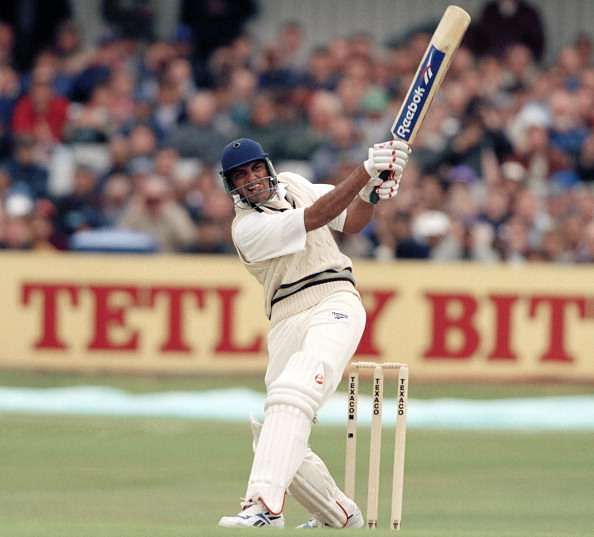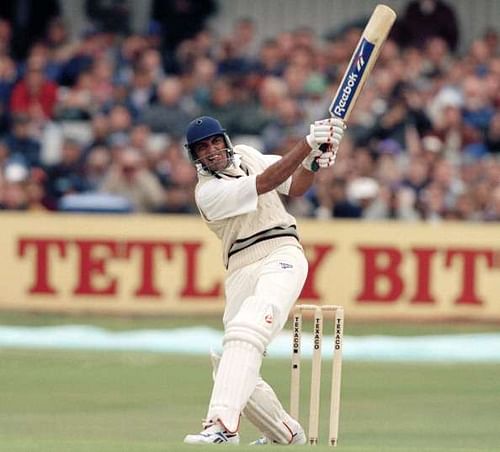
Everyone thinks Mohammad Azharuddin was a match-fixer. But what is the full story and why was his ban lifted?
Mohammad Azharuddin is undoubtedly one of the most divisive figures in the history of Indian cricket. Those who have watched him play would swear that no other batsman could match his elegance. To others, he fell into wrong company and became a traitor who sold his country for money.
At a time when the entire country is eagerly anticipating the release of the upcoming biopic based on his rollercoaster journey, it is pertinent to analyze whether the former Indian skipper is truly ‘tainted’ or not.
Everything began in the late 90s when Azhar was nearing the end of a wonderful career. Renowned for adding artistry to batting, he had been leading the Indian team for almost a decade and was adored by everyone.
However, in a development which sent shock waves throughout the cricket world, Azharuddin was charged with fixing international matches for money. He was subsequently banned by the BCCI in 2000 for bringing disrepute to the game.
Also read: Dirk Nannes slams Azharuddin's appearance at IPL show
In an emotional hearing, popular South African captain Hansie Cronje broke down and pleaded guilty to committing match fixing by cooperating with bookies. He even went on to say that Azhar was the one who introduced those bookies to him.
While Cronje died mysteriously in a plane crash, Azharuddin continued to vehemently refuse the accusations. He has even claimed that he was targeted by numerous forces for belonging to a minority community.
His teammates Ajay Jadeja, Ajay Sharma and Manoj Prabhakar were also implicated in the scandal which threatened to tear the game apart. Apparently, the Delhi Police were the first to blow the whistle on this maelstrom when they recorded a telephonic conversation between Cronje and Sanjay Chawla who was a prominent bookie.
The matches under question included the ODI series of South Africa’s tour to India in March 2000 which the hosts went on to win 3-2. Azhar featured in the first four ODIs under Ganguly’s captaincy and scored 112 runs at an average of 28.
Interestingly, he did not play in the final ODI at Nagpur in which leading South African batsman Herschelle Gibbs revealed that he had retracted after agreeing to underperform. In what was essentially a dead rubber, Gibbs smashed a 53-ball 74 which paved the way for a consolation victory.
When Azhar participated in the 2000 Asia Cup in Bangladesh, he might not have guessed that it was the final chapter of his playing career or that the rest of his life would be spent fighting one legal battle after another in a desperate bid to clear his name.
Andhra Pradesh High Court comes to his rescue
While the BCCI attempted to recognize Azhar’s contribution to Indian cricket by honoring him alongside several other former skippers during the 2006 Champions Trophy on home soil, the question marks surrounding his legacy did not disappear.
Azharuddin joined the Congress party and contested from Moradabad constituency in Uttar Pradesh during the 2009 general elections. Riding on his divisive popularity, he won by a huge margin. Murmurs began about the Indian public gradually deciding to acknowledge his status as a batting icon rather than mulling over the murky off-field affairs.
More importantly, the stylish right-hander was being seen as a man on a redemptive path who had only one mission to complete – bring closure to all those charges and project his career in a different light.
Also read: 5 reasons Mohammad Azharuddin should be remembered for more than match-fixing
On November 8, 2012, the day of reckoning finally arrived. After years of debating on his case, the Andhra Pradesh High Court absolved him of all charges related to match-fixing and revoked the life-ban.
A visibly delighted Azhar reflected, “It was a long drawn out legal case and it was painful. We fought in the court for 11 years. There were lots of adjournments, changes in the case. But finally, the verdict has come and I am happy that the ban has been lifted by the court.”
The primary reason given by the two-member Divisional Bench comprising of Justice Ashutosh Mohunta and Justice Krishna Mohan Reddy was a lack of proper evidence connecting Azharuddin to the fixing offenses. The bench also condemned the BCCI for hastily imposing the lifetime ban.
Admittedly, legal hassles had also played a part in the decision. The panel refused to consider audio recordings of the Delhi Police or Cronje’s statements before coming to a conclusion on Azhar’s case.
However, the man himself did not choose to vigorously hound the BCCI to retract the ban; instead, he opted to leave it on the organization’s behest. The BCCI refused to lift the ban, questioning the court verdict.
A senior board member had revealed, “Nowhere does the judgment mention that he [Azharuddin] did not indulge in match-fixing. At the same time, the honorable court has lashed out at the then BCCI president [AC Muthiah] for unilaterally conducting the enquiry and imposing a ban. So it's a tough call for the board as to how to perceive the verdict.”
For the cricket aficionados in the country, Azhar remains the classic case of so near, yet so far. Ending his career on 99 Tests with a best of 199, the 53-year old ironically stormed out of a press conference lately, refusing to answer questions on match-fixing.
Perhaps he does not want to remember those arduous days. Well, neither do we.
